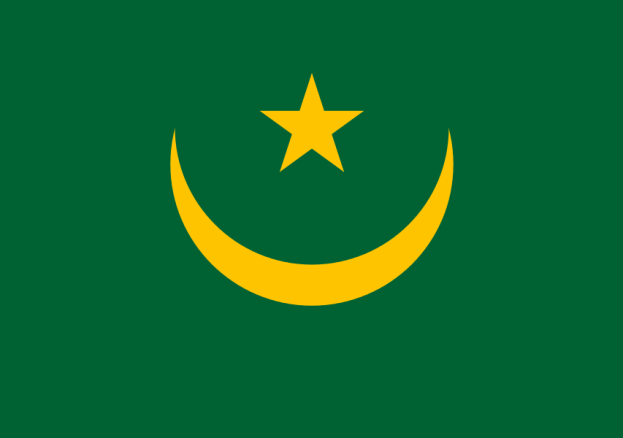
Officially the Islamic Republic of Mauritania is a country in the Maghreb region of western North Africa.
It is the eleventh largest country in Africa with the Atlantic Ocean to its west, Moroccan-controlled Western Sahara in the north, Algeria in the northeast, Mali in the east and southeast, and Senegal in the southwest.
The name ‘Mauritania’ originates from the Berber Kingdom of Mauretania, which existed from the 3rd century BC to the 7th century AD, in what is now Northern Morocco. Because the Sahara Desert occupies much of Mauritania, the large majority of it’s population resides in the southern sections of the country where the chance of rain is slightly higher.
France initially showed interest in the area during the 1800’s and as their influence grew in and around the Senegal, that influence migrated north into Mauritania. Then, in 1901, France sought to formally integrate the land and place it under their Colonial influence and done so successfully with a campaign that sought to make the native emirates in the region as allies.
Only the Brakna, Tagant and Trarza signed agreements with the French, however the most Northern emirate; the Adrar did not agree and with an alliance of shaykh Maa al-Aynayn the two groups began an Anti-colonial rebellion against French occupation in the area.
Whilst it can be argued that the Adrar would have agreed with the French like the other emirates in the area, it had come to light that the French had claimed the Adrar reigon for themselves in a plan as early as 1904.
Adrar fought an Anti-colonial rebellion until their military was defeated in 1912 and Mauritania officially became a part of French West Africa in 1920.
Under colonial rule, conditions did not improve drastically like many had anticipated. Instead, French rule outlawed slavery and inter-clan warfare.
With few improvements to infrastructure in the region, 90% of the population remained nomadic and many sedentary peoples, whose ancestors had been expelled centuries earlier, began to trickle back into Mauritania.
Road to independence
Mauritania’s independence is largely attributed to the independence granted to Morocco once the French protectorate had ended in 1956.
However, it would be until 1960 when Mauritania was officially awarded independence from France. It is largely regarded as a cautionary move, as tensions within French controlled Africa grew and the calls for independence becoming louder, both in Africa and France too.
As the country gained independence in 1960, the capital city Nouakchott was founded at the site of a small colonial village, the Ksar which remains as the capital city today.
Mauritania’s independence day is celebrated November 28th, every year.
